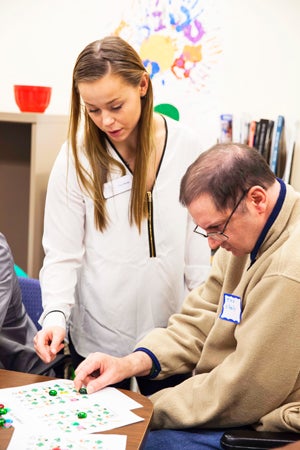B.S. in Communicative Disorders
Overview

As a communicative disorders major, you’ll study the science behind communication problems and their development, and learn how to treat children and adults with speech, language and hearing issues. You’ll also learn to use both creative thinking and technology to come up with new strategies and for diagnosis and rehabilitation. The B.S. degree provides a solid foundation for careers in speech-language pathology, audiology, and other health and education related fields.
In this major, you will learn about the anatomical, neurological, linguistic, and cultural processes underlying communication and communication disorders. As you progress through the major, you will be exposed to the fields of audiology and speech-language pathology.
You’ll gain a solid foundation that prepares you to delve deeper into a variety of communication disorders that speech-language pathologists address—like aphasia, autism, childhood language disorders, and others. In audiology classes, you’ll learn how you can use speech therapy, hearing aids, lip-reading, sign language, and other tools to help people overcome hearing challenges.
During your senior year, you will have opportunities to participate in clinical observations and learn about the basic principles of evaluating and treating individuals with communication disorders.
Learning Outcomes
- Students must demonstrate basic understanding of human communication processes across the lifespan.
- Students must be able to critically examine and synthesize information, both orally and in writing, from various in class and out of class sources.
- Students must identify and understand the nature of a communication disorder.
